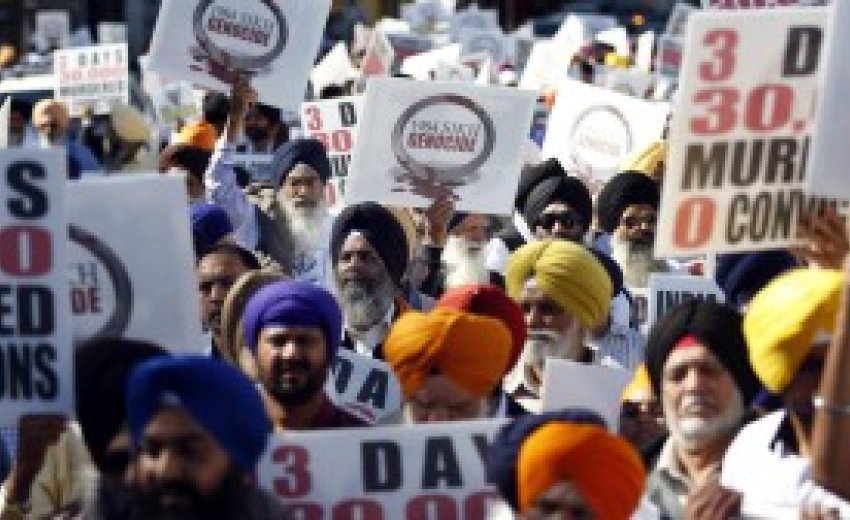 anki Kaur was 22 when the rioting mob burst into her home and murdered her husband and father in front of her. She listened as they raped her mother in the next room.
anki Kaur was 22 when the rioting mob burst into her home and murdered her husband and father in front of her. She listened as they raped her mother in the next room.
More than three decades after living through that violence in the suburbs of New Delhi, she has only one explanation for why her family was targeted: "We were Sikhs living in India."
Kaur was one of hundreds of people who marched down Beverly Boulevard on Saturday to commemorate what members of India's Sikh religious minority call their holocaust.
Thousands were killed in three days of pogroms across the country 31 years ago last week.
The attacks were widely viewed as state-sanctioned retaliation for the assassination of Indian Prime Minister Indira Gandhi, who was killed by two Sikh bodyguards angered by her authorization of an army assault on a holy Sikh temple.
| For three days, the whole country stood still and watched people kill. - Tajinder Kaur, Sikhs for Justice |
The Indian government long dismissed the attacks as "riots," and few perpetrators were punished.
In recent years, Sikhs in India and around the world have pressured the country to recognize the violence as genocide and bring those behind it to justice.
"For three days, the whole country stood still and watched people kill," said Tajinder Kaur of Sikhs for Justice, which helped organize Saturday's march. "There needs to be an acknowledgment of that."
Last year, after the group petitioned the United Nations to open an investigation into the 1984 violence, India's home minister held a meeting with survivors and promised to charge those responsible for what he called a "genocide."
1984 Anti- Sikh Violence genocide protest march on Beverly Blvd in West Hollywood, Ca.
Despite that victory of semantics, they continue to be persecuted, many Sikhs said.
Last month, police in India killed two Sikhs who were protesting the alleged desecration of their holy book. The Sikh community responded to the killings with large-scale protests across the Sikh-majority state of Punjab, blocking highways and bridges.
Those who participated in Saturday's event in Los Angeles said they were marching in solidarity.
"We're trying to defend our grandparents and our families," said Harondeep Singh, 23, who wore a traditional dress called a chola along with a black hoodie that featured drawings of Sikh men toting bayonets and rifles. Singh, who moved with his family from India to Arcadia as a child, had a knife tucked in his waistband, as is custom for men of the religion.
He said he has experienced discrimination on trips to India. When he visited his grandparents there two years ago, they wouldn't let him outside after dark because they were worried police would give him a hard time.
The march, which began near the Beverly Center and ended at the Los Angeles Museum of the Holocaust, drew hundreds of bearded men in turbans and women in colorful saris. Many held signs demanding reparations and calling for the creation of an independent Sikh state.
Marchers came from across the world, but most were from California's Sikh population of several hundred thousand.
Janki Kaur moved to Northern California to live near her sister this year. She teared up as the crowd moved down Beverly Boulevard, walking slowly and singing in prayer.
She is still haunted by the memory of the violence directed at her family, she said, and reliving it isn't easy.
"It's difficult," she said, "but it's important that I share the pain."
[email protected] Twitter: @katelinthicum
